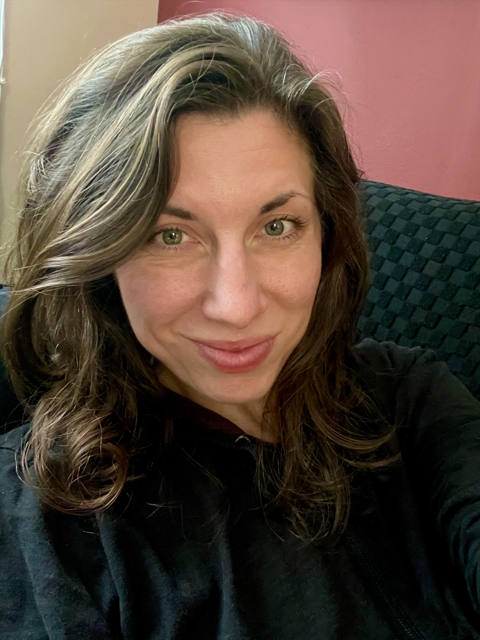-
“For most of my life, I struggled with what I called ‘the darkness,’” shared former ICMHA program participant Amy. As a young teen, Amy grappled with the early onset of bipolar disorder, which first appeared as depression. This led to Amy self-medicating with drugs and alcohol. “Traumatic things happened in my developmental years,” said Amy. “My life was a mess by the time I entered psychiatry at age 15. I was in the midst of a heavy struggle with self-harm, suicidal ideation, psychosis, and substance misuse. I was experiencing homelessness. I didn’t know how to cope.”
Amy was able to get psychiatric help, but it wasn’t a quick fix. For many people who have a mental health condition, the healing process isn’t as simple as taking medication and feeling better overnight. It still took Amy three years to receive a bipolar disorder diagnosis and many more years of struggling with medication side effects and substance misuse to be where she is now: Medication, drug, and alcohol free.
Amy first became involved with ICMHA through their Supported Education Program in 2010, which helped her go back to school for art and business. She also participated in the GROW program, which helped her build skills to better understand and manage her mental health.
The turning point for Amy’s recovery was in 2018 when her mental and physical health hit an all time low. She started learning ways, outside of medication, to empower and care for herself. In 2023, she applied and received employment as a Peer Support Worker at ICMHA. “Peer support has been a crucial part of my mental health recovery because it allows me to share my personal story that recovery is possible. Believing we can heal doesn’t mean we can, however believing we can’t ensures that we won’t. Hope is necessary in the recovery journey,” shared Amy.
Today Amy is a working artist and mental health advocate, in addition to being a Peer Support Worker at ICMHA. As a Peer Support Worker, Amy works with participants in the Art Group, Goal Setting Group, Talk & Step, and Cooking Club.
It’s Amy’s own mental health experiences that motivate her to do Peer Support. “I felt so alone in my struggles. Now I get to share my story in a way that helps others feel less alone in theirs. It’s a dream job,” said Amy. “Recovery isn’t for a chosen few; it’s for everyone. Hope is a powerful force. It’s invisible and yet it saves lives.”
